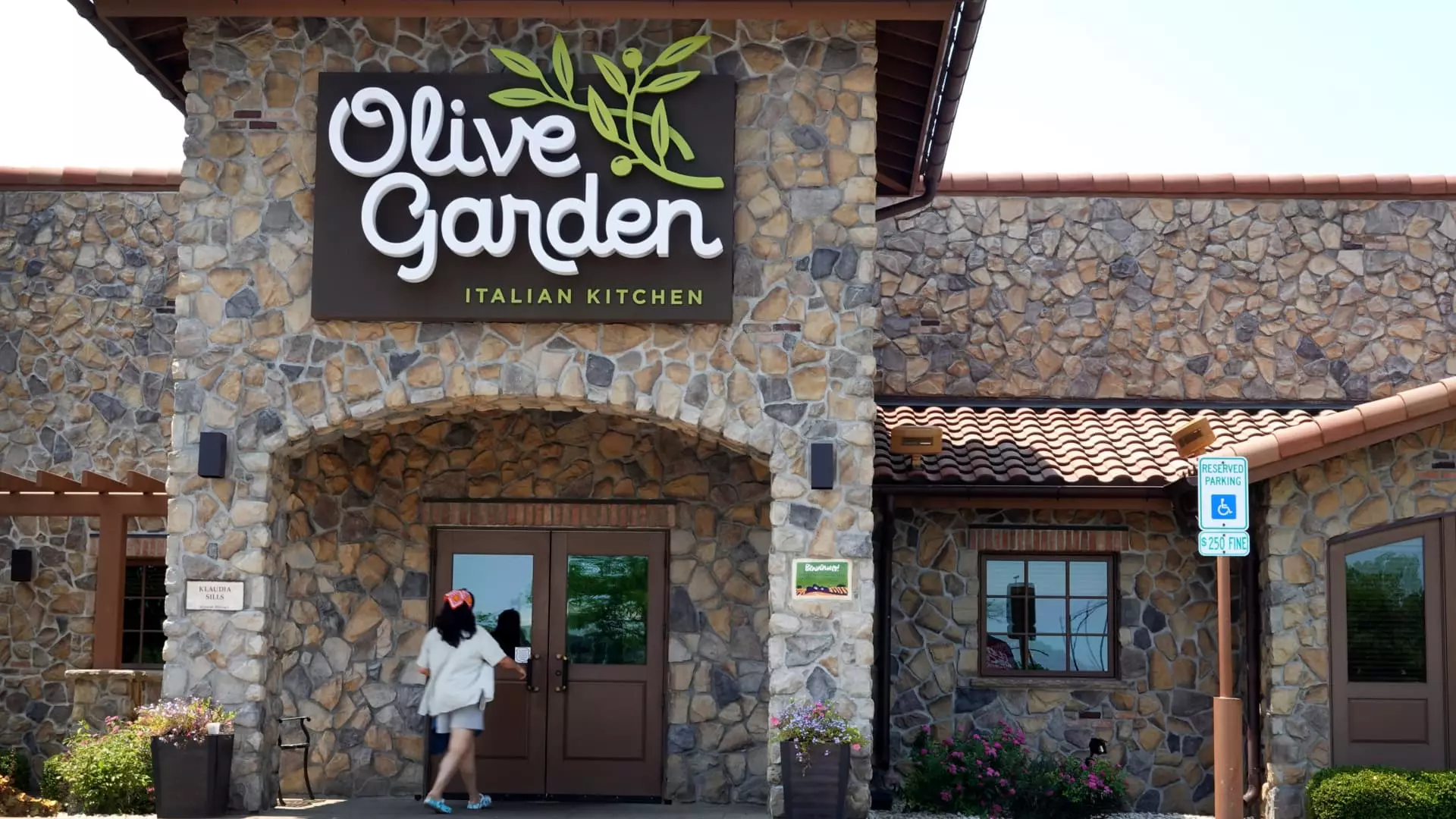Darden Restaurants has recently released their quarterly earnings report, highlighting results that fell short of analyst expectations. For the fiscal first quarter ending August 25, the renowned dining group, which operates brands like Olive Garden and LongHorn Steakhouse, revealed earnings per share (EPS) of $1.75, slightly below the anticipated $1.83. Revenue came in at $2.76 billion, which also lagged behind the projected $2.8 billion. In a climate where consumer spending in the restaurant sector is facing scrutiny, such figures raise red flags about the company’s overall performance.
Although net income has shown an increase from $194.5 million to $207.2 million year-over-year, the growth comes from a relatively low base, questioning the sustainability of this upward trend in a challenging market. High inflation rates and changing consumer preferences are complicating factors that Darden will need to navigate carefully in the upcoming quarters.
The two key brands, Olive Garden and Darden’s fine-dining segment—including Eddie V’s and The Capital Grille—have experienced notable declines in same-store sales. Specifically, Olive Garden reported a 2.9% drop, while fine-dining establishments saw a staggering 6% decline. This downturn is alarming, especially considering that these brands had previously been core strengths of Darden’s portfolio. The decline underscores a broader challenge within the casual dining sector, where consumer behavior is increasingly influenced by health trends and economic pressures.
The company’s financial leadership offers some cautious optimism, with CFO Raj Vennam indicating a rebound in customer traffic after a sharp downturn in July. However, such fluctuations pose questions about whether these improvements will be sustainable or if they constitute a temporary blip due to seasonal changes or promotional efforts.
To revive its sales performance, Darden is implementing strategic initiatives aimed at reconnecting with customers. The reintroduction of the popular “Never Ending Pasta Bowl” promotion at Olive Garden is a defensive maneuver aimed at boosting traffic and encouraging repeat visits. Despite the underwhelming quarterly results, CEO Rick Cardenas remains confident in the brand’s long-term strategy, emphasizing the importance of meeting customer expectations while also safeguarding the business’s health.
It’s noteworthy that while Darden’s broader portfolio faced hurdles, LongHorn Steakhouse emerged as a bright spot with a 3.7% growth in same-store sales. Having previously performed well throughout the pandemic, this division could serve as a model for revitalizing other underperforming brands.
Furthermore, despite the current setbacks, the company reiterated its optimistic full-year forecast, projecting earnings per share from continuing operations to be in the $9.40 to $9.60 range. The anticipation of net sales between $11.8 billion and $11.9 billion signals Darden’s resilience and potential for recovery.
While Darden Restaurants currently grapples with significant operational challenges reflected in their quarterly earnings and sales figures, the company’s proactive approaches may set the stage for recovery. As consumer dining habits continue to evolve, Darden could find new opportunities to innovate and adapt, reaffirming its commitment to long-term growth and customer satisfaction.

